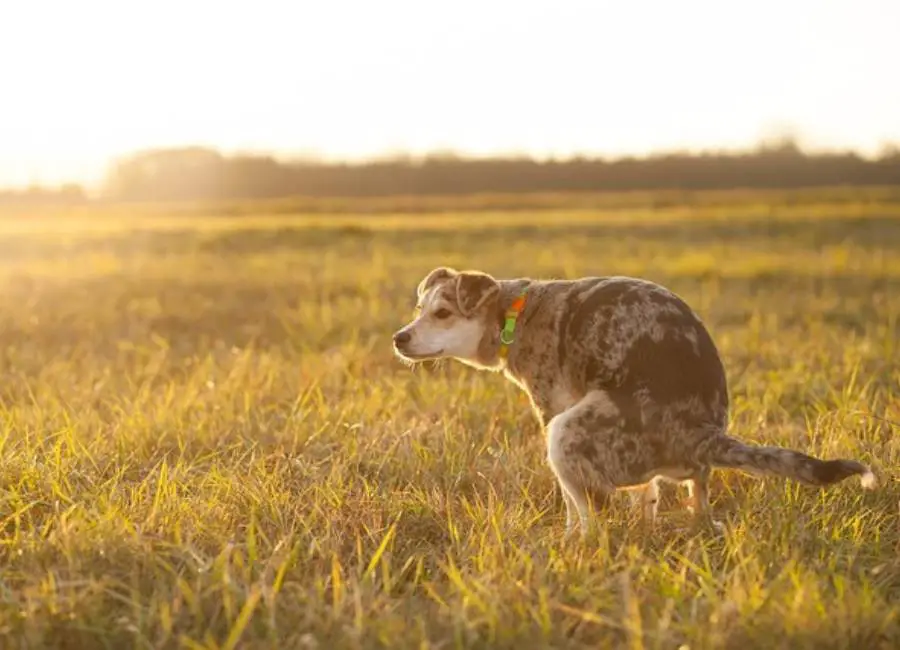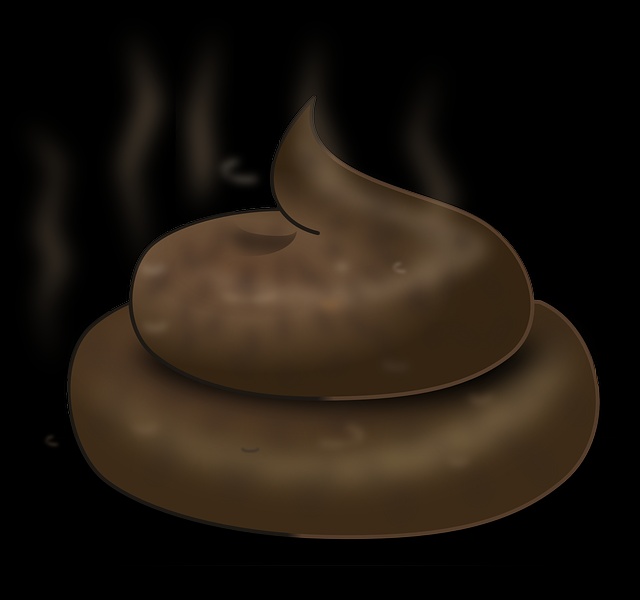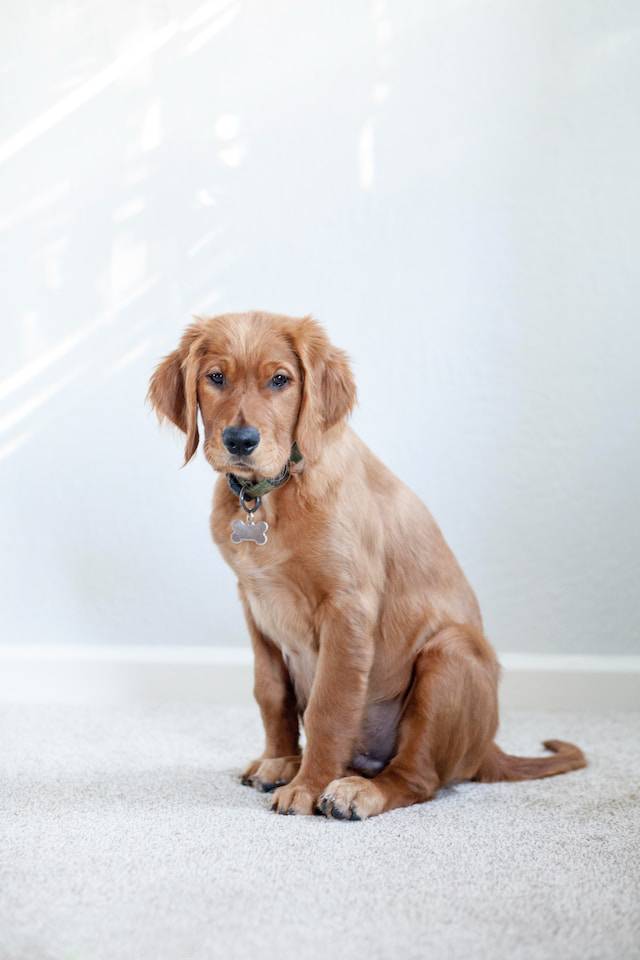9 Reasons Your Dog Poop is Dry and Crumbly

Hey there, fellow dog lovers! Let’s talk about a subject that might not be the most glamorous, but is important when it comes to our furry friends’ health – dog poop. And more specifically, why it sometimes ends up dry and crumbly.
We all know that keeping an eye on our pooches’ poop is crucial in gauging their overall well-being. Dry and crumbly poop might not be ideal, but it can give us valuable insights into their digestion, diet, and hydration levels. So, let’s dive in and uncover the mystery behind your dog’s desert-like droppings!
Why Your Dog Poop is Dry and Crumbly
Dry and crumbly dog poop can be a sign of constipation, dehydration, or lack of fiber in the diet, and insufficient water intake can lead to drier stool or certain medical conditions.
It is important to ensure that your dog is adequately hydrated, and their diet includes enough fiber to promote regular bowel movements.
If the issue persists or is accompanied by other symptoms, it is recommended to consult with a veterinarian for a proper diagnosis and treatment.
Description of healthy dog poop consistency
Healthy dog poop consistency can vary depending on factors such as diet, hydration, and exercise. In general, healthy dog poop should be formed, moist, and easy to pick up. It should hold its shape but not be too hard or too soft.
The color can range from shades of brown to a slightly greenish hue, depending on the dog’s diet. Healthy poop should not contain visible blood, mucus, or foreign objects. It should also not have a foul odor.
Factors Affecting Dog Poop Appearance
Dog poop appearance can be influenced by several factors. Here are some major factors that can affect the appearance of dog poop:
- Diet: One of the most significant factors is the dog’s diet. The type of food a dog consumes directly affects the consistency, color, and odor of their feces. For example, a diet rich in fiber often leads to firmer and well-formed stools, while a diet high in fat may result in loose or oily poop.
- Hydration: Adequate hydration is crucial for maintaining healthy digestion and normal poop consistency. If a dog is dehydrated, their stools may appear dry, hard, and difficult to pass. Conversely, excessive hydration or consuming excess water can result in loose or watery stools.
- Medications and Supplements: Certain medications or supplements given to dogs can affect their poop appearance. For instance, some antibiotics can cause diarrhea, while iron supplements may darken the color of the feces.
- Health Conditions: Various health conditions can significantly impact the appearance of dog poop. Digestive disorders, such as inflammatory bowel disease or parasites like worms, can cause changes in consistency, color, and smell. It is essential to consult a veterinarian if there are concerns about the dog’s poop appearance, especially if accompanied by other symptoms or behavioral changes.
- Exercise and Activity Level: Regular exercise and physical activity can contribute to optimal digestive health in dogs. Dogs that are sedentary or lack exercise may experience sluggish digestive function, potentially leading to changes in poop appearance.
It’s important to note that occasional variations in dog poop appearance are normal. However, persistent or significant changes in consistency, color, or odor may signal an underlying issue that requires veterinary attention.
Monitoring and understanding these factors can help pet owners recognize potential problems and maintain their dog’s overall health.
Reasons Your Dog Poop is Dry and Crumbly

The following are some of the most common reasons why your dog poop is dry and crumbly:
1. Inadequate Hydration
Proper hydration is essential for maintaining a healthy digestive system in dogs. When dogs don’t drink enough water, their bodies try to conserve it, leading to less water in the digestive tract. This can result in dry and crumbly poop.
Make sure your dog always has access to fresh water, especially during warm weather or after physical activities. If you notice your dog isn’t drinking enough, consider adding a bit of water to their food or providing ice cubes as a tasty way to increase water intake.
2. Fiber Deficiency
Fiber plays a vital role in regulating bowel movements and maintaining the right poop consistency. Insufficient fiber in a dog’s diet can cause constipation and result in dry, hard stools.
Incorporate fiber-rich foods into your dog’s meals, such as cooked pumpkin, sweet potatoes, or green beans. However, introduce these foods gradually to prevent digestive upset. You can also consider commercial dog foods that are formulated with adequate fiber content.
3. Diet Imbalance
A well-balanced diet is crucial for a dog’s overall health, including their digestive system. A diet lacking essential nutrients can lead to poor digestion and, consequently, dry and crumbly poop. Dogs require appropriate levels of proteins, fats, carbohydrates, vitamins, and minerals to thrive.
When selecting dog food, look for options that meet the specific nutritional needs of your dog’s age, size, and activity level. Consulting with your veterinarian can help you choose the best food for your furry friend.
4. Sudden Diet Changes
Switching your dog’s food abruptly can lead to gastrointestinal disturbances, resulting in dry and crumbly poop. Dogs have sensitive digestive systems, and sudden changes can cause them discomfort.
If you need to change their diet, do it gradually over a period of about a week. Start by mixing a small amount of the new food with the old one, and gradually increase the proportion of the new food until the transition is complete.
5. Intestinal Parasites
Internal parasites, such as worms, can disrupt the normal digestive process in dogs. They feed on nutrients in the dog’s intestines, causing malabsorption and leading to changes in stool consistency.
Regular deworming and fecal checks are essential to prevent and treat parasitic infections. Your veterinarian can recommend an appropriate deworming schedule based on your dog’s risk factors.
6. Medical Conditions
Several medical conditions can contribute to dry and crumbly dog poop. These may include pancreatitis, inflammatory bowel disease (IBD), gastrointestinal infections, or food sensitivities.
If you observe persistent changes in your dog’s stool, such as blood, mucus, or an unusual odor, consult your veterinarian for a thorough examination and appropriate diagnostic tests. Treatment will depend on the underlying cause.
7. Medication Side Effects
Certain medications may have side effects that impact a dog’s bowel movements. If your dog is on medication and you notice changes in their poop consistency, inform your veterinarian immediately. They may adjust the dosage or switch to a different medication to minimize side effects.
8. Dehydration
Dehydration can occur for various reasons, such as excessive exercise, hot weather, or certain medications. When your dog’s body lacks adequate water, their digestive system may struggle to maintain proper bowel movements, resulting in dry poop.
Keep a close eye on your pet during hot days and after physical activities, ensuring they have access to water at all times. If your dog is taking medications that could lead to dehydration, consult your vet for guidance on managing this issue.
9. Food Allergies or Sensitivities
Some dogs may develop allergies or sensitivities to certain ingredients in their food. These can disrupt their digestive system, leading to dry and crumbly poop.
If you notice a pattern of dry stools after specific meals, consider switching to hypoallergenic dog food or a limited-ingredient diet. Your vet can help you identify the allergen and recommend suitable dietary changes.
Learn more about dealing with dog poop in your yard.
How to Address Your Dog Poop that is Dry and Crumbly

To fix your dog’s poop that is dry and crumbly, there are several home remedies you can try:
Increase Water Intake
One of the most important remedies for dry and crumbly dog poop is to ensure that your dog is well-hydrated. Dehydration can contribute to constipation, so make sure your dog has access to clean and fresh water at all times. You can also try adding chicken broth or water to your dog’s food to increase their water intake.
Dietary Fiber
Adding fiber-rich foods to your dog’s diet can help soften their stool and promote regular bowel movements. Some examples of high-fiber foods for dogs include pumpkin, sweet potato, green beans, and oat bran. Start by gradually introducing small amounts of fiber-rich foods to your dog’s diet and monitor their stool consistency.
Exercise
Regular exercise can help stimulate your dog’s digestive system and promote regular bowel movements. Take your dog for daily walks or engage them in playtime to encourage movement and physical activity. Exercise can also help relieve stress, which can sometimes contribute to constipation.
Stool Softeners and Lubricants
There are over-the-counter stool softeners and lubricants available for dogs that can help soften the stool and make it easier to pass. However, it is important to consult with your veterinarian before using any medication, as they can provide guidance on the appropriate dosage and potential side effects.
Probiotics
Probiotics can help regulate your dog’s digestive system and improve their gut health, which can help alleviate constipation. Some examples of probiotic-rich foods for dogs include yogurt, kefir, and fermented vegetables. You can also find probiotic supplements specifically formulated for dogs.
Remember, it is always best to consult with your veterinarian before making any changes to your dog’s diet or introducing new remedies.
Your veterinarian can provide personalized advice and guidance based on your dog’s specific needs and health status.
Learn more about dogs pooping liquid blood.
Related Questions
What can I do to address the issue of dry dog poop?
Firstly, make sure your dog is well hydrated. Ensure they always have access to fresh water. You can also try adding more moisture to their diet by including wet food or mixing some water into their dry kibble. Additionally, consider consulting your veterinarian for dietary recommendations tailored to your dog’s needs.
Are there any health concerns associated with dry dog poop?
Yes, there can be a few concerns. Dry and crumbly poop can be a sign of constipation or other digestive issues. It’s important to monitor your dog’s bathroom habits and seek veterinary advice if the problem persists or if your dog shows signs of discomfort.
Can certain dog breeds be more prone to dry poop?
While it’s not exclusive to specific breeds, certain dogs may have a predisposition to digestive problems, which can lead to dry stool. Breeds with sensitive stomachs or those prone to dehydration may be more likely to experience dry and crumbly poop.
Learn more about dog pooping when left alone.
Can medications or medical conditions cause dry dog poop?
Yes, certain medications or underlying medical conditions can impact your dog’s digestion and lead to dry stool. If your dog is on medication or has a pre-existing condition, it’s essential to discuss any changes in their bowel movements with your veterinarian.
How can I prevent my dog from having dry and crumbly poop?
Maintaining a well-balanced diet that includes adequate moisture and fiber is crucial. Ensure your dog is getting enough water throughout the day and provide them with a nutritious diet suitable for their specific needs. Regular exercise and a healthy lifestyle can also support proper digestion for your furry friend.
Learn more about your dog poop looking like mucus.
Conclusion
In conclusion, when it comes to the topic of dog poop being dry and crumbly, it’s clear that understanding your furry friend’s digestive health is crucial. While it may seem like a trivial matter, the consistency of their poop can actually indicate underlying issues or nutritional imbalances.
So, next time you’re out on a walk with your pup and notice dry and crumbly poop, don’t dismiss it! Consult with your veterinarian to ensure your four-legged companion is getting the proper care and nutrition they need for a happy and healthy life. Remember, a little attention to their poop can go a long way in ensuring their well-being!
